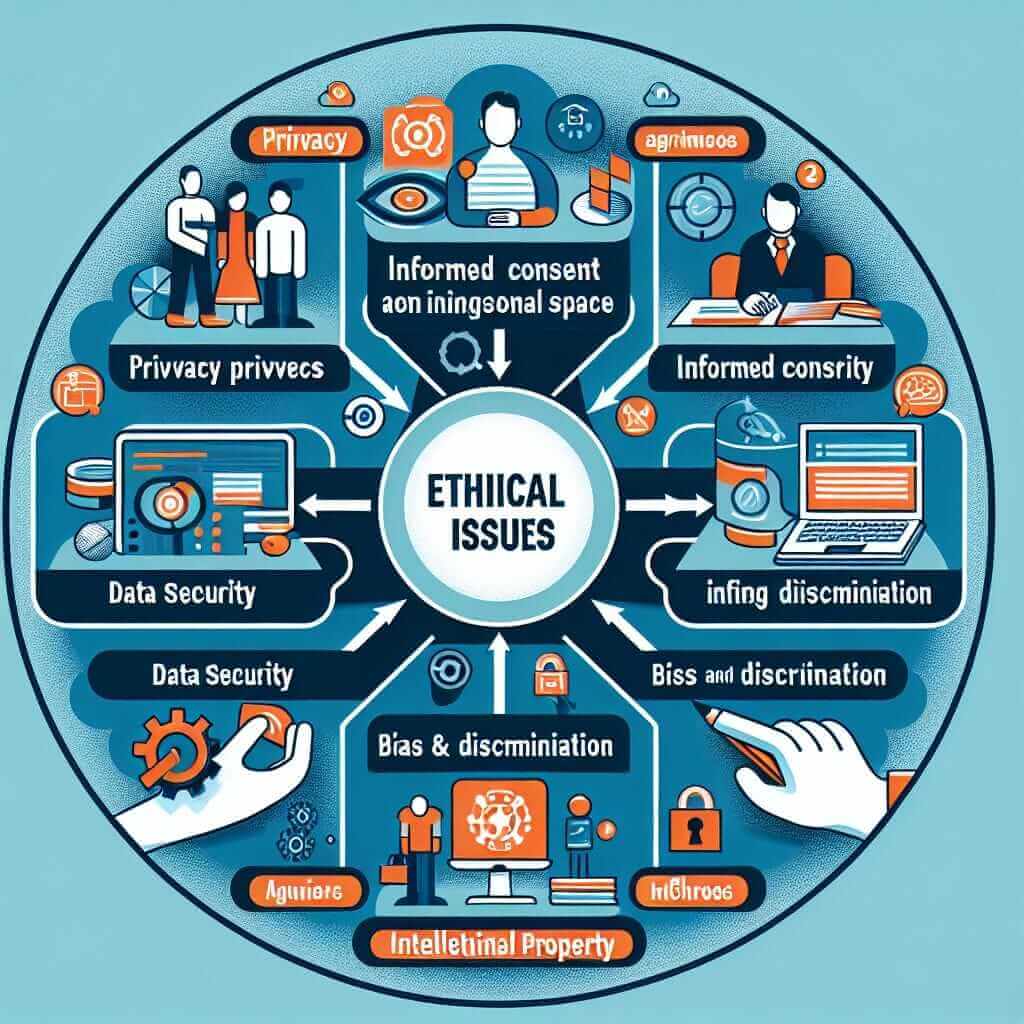The IELTS Reading test is a crucial component of the overall IELTS test, designed to evaluate your reading comprehension skills. The topics for the reading passages are diverse, including recent technological advancements and their societal impacts. One such prevalent and relevant topic is “What are the ethical implications of data mining?”. This subject has gained significant attention in recent years, and understanding it can give you an edge in your preparation for the IELTS Reading test.
In this article, we will explore a comprehensive reading passage on “the ethical implications of data mining”, complete with questions and detailed answers. This format will closely mimic the structure of the actual IELTS Reading test, providing you with realistic practice.
The Reading Passage
The Ethical Implications of Data Mining
Data mining has revolutionized the way businesses and organizations operate by extracting valuable insights from vast datasets. However, the practice of data mining brings with it a slew of ethical concerns that spark debate among experts, policymakers, and the general public. This article delves into some of the primary ethical implications associated with data mining.
Privacy Concerns
One of the foremost ethical issues in data mining revolves around privacy. Individuals’ personal data is often collected, stored, and analyzed without their explicit consent, raising questions about the right to privacy. When organizations hold vast amounts of personal information, the risk of data breaches or unauthorized access to sensitive data increases significantly.
Informed Consent
Closely related to privacy is the issue of informed consent. Often, individuals are unaware that their data is being mined, nor do they understand how it will be used. This lack of transparency can lead to exploitation and misuse of personal information. Ensuring that individuals provide informed consent before their data is used is a foundational ethical principle yet challenging to implement on a large scale.
Data Security
Data security is another critical ethical consideration. Data mining requires the aggregation of vast amounts of data, necessitating stringent security measures to protect this information from being hacked or misused. Organizations are ethically obliged to adopt robust security protocols to safeguard sensitive data.
Bias and Discrimination
Data mining algorithms are often trained on historical data, which can contain inherent biases. If not carefully managed, these biases can be perpetuated in the outcomes of data mining processes, leading to discriminatory practices. For example, biased data can result in unfair hiring practices, loan approvals, or law enforcement decisions, thereby perpetuating social inequities.
Intellectual Property
The ethics of intellectual property also come into play with data mining. There are questions about who owns the data and the insights derived from it. While organizations may argue that they hold proprietary rights over the data they collect and analyze, the individuals from whom the data is sourced may view it as their own. This ongoing conflict necessitates clear regulations to balance the interests of all stakeholders.

The Questions
Based on the reading passage above, answer the following questions:
Questions 1-5: True, False, Not Given
- Data mining generally respects the privacy of individuals.
- Informed consent is often adequately obtained in data mining practices.
- Data security is a negligible aspect in the context of data mining.
- Data mining cannot lead to biased outcomes.
- Ownership of data and derived insights is clearly defined in all cases of data mining.
Questions 6-10: Matching Information
Match the following ethical issues (6-10) with their descriptions (A-E):
- Privacy Concerns
- Informed Consent
- Data Security
- Bias and Discrimination
- Intellectual Property
A. Ensuring data is protected from unauthorized access.
B. Individuals should be aware of and agree to the mining of their data.
C. Addresses the potential for data-driven decisions to reinforce existing social inequities.
D. Deals with who holds the rights to the data and its insights.
E. Involves the collection and use of personal data without explicit approval.
Answer Key and Explanations
Answers to True, False, Not Given
- False – The passage mentions that personal data is often collected without consent, raising privacy concerns.
- False – The passage states that individuals are often unaware their data is being mined, suggesting a lack of informed consent.
- False – The passage clearly points out the necessity of robust security measures for protecting data.
- False – The passage indicates that biases in data can lead to discriminatory practices.
- Not Given – The passage discusses the conflict over data ownership but doesn’t clarify if ownership is always clearly defined.
Answers to Matching Information
- E
- B
- A
- C
- D
Common Mistakes and Tips
Students often misunderstand the nuances between “False” and “Not Given”. Remember, “False” means the passage explicitly contradicts the statement, while “Not Given” means the information is not mentioned at all. When matching information, it is crucial to carefully read the descriptions and match them precisely to ensure accuracy.
Vocabulary
- Explicit (adj) /ɪkˈsplɪsɪt/: Clearly stated or shown; forthright in expression.
- Consent (n) /kənˈsɛnt/: Permission for something to happen or agreement to do something.
- Perpetuate (v) /pərˈpɛtʃueɪt/: Make (something, typically an undesirable situation) continue indefinitely.
- Stringent (adj) /ˈstrɪndʒənt/: Strict, precise, and exacting.
- Proprietary (adj) /prəˈpraɪəˌtɛri/: Relating to an owner or ownership.
Grammar Focus
Relative Clauses
Relative clauses can provide additional information about a noun. They are introduced by relative pronouns such as who, whom, whose, where, when, and that.
Example from passage: “Individuals’ personal data, which is often collected without their explicit consent, raises questions about the right to privacy.”
Conclusion
Mastering IELTS Reading requires regular and focused practice on diverse topics. Understanding the ethical implications of data mining is not only relevant for the IELTS exam but also essential in today’s technology-driven world. By practicing with realistic passages and questions like the ones provided here, you can enhance your comprehension skills and boost your overall IELTS score.